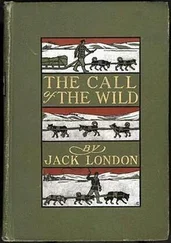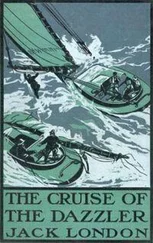Jack London - The Road
Здесь есть возможность читать онлайн «Jack London - The Road» весь текст электронной книги совершенно бесплатно (целиком полную версию без сокращений). В некоторых случаях можно слушать аудио, скачать через торрент в формате fb2 и присутствует краткое содержание. Год выпуска: 1907, Жанр: Классическая проза, на английском языке. Описание произведения, (предисловие) а так же отзывы посетителей доступны на портале библиотеки ЛибКат.
- Название:The Road
- Автор:
- Жанр:
- Год:1907
- ISBN:нет данных
- Рейтинг книги:5 / 5. Голосов: 1
-
Избранное:Добавить в избранное
- Отзывы:
-
Ваша оценка:
- 100
- 1
- 2
- 3
- 4
- 5
The Road: краткое содержание, описание и аннотация
Предлагаем к чтению аннотацию, описание, краткое содержание или предисловие (зависит от того, что написал сам автор книги «The Road»). Если вы не нашли необходимую информацию о книге — напишите в комментариях, мы постараемся отыскать её.
The Road — читать онлайн бесплатно полную книгу (весь текст) целиком
Ниже представлен текст книги, разбитый по страницам. Система сохранения места последней прочитанной страницы, позволяет с удобством читать онлайн бесплатно книгу «The Road», без необходимости каждый раз заново искать на чём Вы остановились. Поставьте закладку, и сможете в любой момент перейти на страницу, на которой закончили чтение.
Интервал:
Закладка:
At last came the hat, the one hat in Sacramento for me. I knew it was a winner as soon as I looked at it. I glanced at Bob. He sent a sweeping look-about for police, then nodded his head. I lifted the hat from the Chinaman's head and pulled it down on my own. It was a perfect fit. Then I started. I heard Bob crying out, and I caught a glimpse of him blocking the irate Mongolian and tripping him up. I ran on. I turned up the next corner, and around the next. This street was not so crowded as K, and I walked along in quietude, catching my breath and congratulating myself upon my hat and my get-away.
And then, suddenly, around the corner at my back, came the bare-headed Chinaman. With him were a couple more Chinamen, and at their heels were half a dozen men and boys. I sprinted to the next corner, crossed the street, and rounded the following corner. I decided that I had surely played him out, and I dropped into a walk again. But around the corner at my heels came that persistent Mongolian. It was the old story of the hare and the tortoise. He could not run so fast as I, but he stayed with it, plodding along at a shambling and deceptive trot, and wasting much good breath in noisy imprecations. He called all Sacramento to witness the dishonor that had been done him, and a goodly portion of Sacramento heard and flocked at his heels. And I ran on like the hare, and ever that persistent Mongolian, with the increasing rabble, overhauled me. But finally, when a policeman had joined his following, I let out all my links. I twisted and turned, and I swear I ran at least twenty blocks on the straight away. And I never saw that Chinaman again. The hat was a dandy, a brand-new Stetson, just out of the shop, and it was the envy of the whole push. Furthermore, it was the symbol that I had delivered the goods. I wore it for over a year.
Road-kids are nice little chaps-when you get them alone and they are telling you "how it happened"; but take my word for it, watch out for them when they run in pack. Then they are wolves, and like wolves they are capable of dragging down the strongest man. At such times they are not cowardly. They will fling themselves upon a man and hold on with every ounce of strength in their wiry bodies, till he is thrown and helpless. More than once have I seen them do it, and I know whereof I speak. Their motive is usually robbery. And watch out for the "strong arm." Every kid in the push I travelled with was expert at it. Even French Kid mastered it before he lost his legs.
I have strong upon me now a vision of what I once saw in "The Willows." The Willows was a clump of trees in a waste piece of land near the railway depot and not more than five minutes walk from the heart of Sacramento. It is night-time and the scene is illumined by the thin light of stars. I see a husky laborer in the midst of a pack of road-kids. He is infuriated and cursing them, not a bit afraid, confident of his own strength. He weighs about one hundred and eighty pounds, and his muscles are hard; but he doesn't know what he is up against. The kids are snarling. It is not pretty. They make a rush from all sides, and he lashes out and whirls. Barber Kid is standing beside me. As the man whirls, Barber Kid leaps forward and does the trick. Into the man's back goes his knee; around the man's neck, from behind, passes his right hand, the bone of the wrist pressing against the jugular vein. Barber Kid throws his whole weight backward. It is a powerful leverage. Besides, the man's wind has been shut off. It is the strong arm.
The man resists, but he is already practically helpless. The road-kids are upon him from every side, clinging to arms and legs and body, and like a wolf at the throat of a moose Barber Kid hangs on and drags backward. Over the man goes, and down under the heap. Barber Kid changes the position of his own body, but never lets go. While some of the kids are "going through" the victim, others are holding his legs so that he cannot kick and thresh about. They improve the opportunity by taking off the man's shoes. As for him, he has given in. He is beaten. Also, what of the strong arm at his throat, he is short of wind. He is making ugly choking noises, and the kids hurry. They really don't want to kill him. All is done. At a word all holds are released at once, and the kids scatter, one of them lugging the shoes-he knows where he can get half a dollar for them. The man sits up and looks about him, dazed and helpless. Even if he wanted to, barefooted pursuit in the darkness would be hopeless. I linger a moment and watch him. He is feeling at his throat, making dry, hawking noises, and jerking his head in a quaint way as though to assure himself that the neck is not dislocated. Then I slip away to join the push, and see that man no more-though I shall always see him, sitting there in the starlight, somewhat dazed, a bit frightened, greatly dishevelled, and making quaint jerking movements of head and neck.
Drunken men are the especial prey of the road-kids. Robbing a drunken man they call "rolling a stiff"; and wherever they are, they are on the constant lookout for drunks. The drunk is their particular meat, as the fly is the particular meat of the spider. The rolling of a stiff is ofttimes an amusing sight, especially when the stiff is helpless and when interference is unlikely. At the first swoop the stiff's money and jewellery go. Then the kids sit around their victim in a sort of pow-wow. A kid generates a fancy for the stiff's necktie. Off it comes. Another kid is after underclothes. Off they come, and a knife quickly abbreviates arms and legs. Friendly hoboes may be called in to take the coat and trousers, which are too large for the kids. And in the end they depart, leaving beside the stiff the heap of their discarded rags.
Another vision comes to me. It is a dark night. My push is coming along the sidewalk in the suburbs. Ahead of us, under an electric light, a man crosses the street diagonally. There is something tentative and desultory in his walk. The kids scent the game on the instant. The man is drunk. He blunders across the opposite sidewalk and is lost in the darkness as he takes a short-cut through a vacant lot. No hunting cry is raised, but the pack flings itself forward in quick pursuit. In the middle of the vacant lot it comes upon him. But what is this?-snarling and strange forms, small and dim and menacing, are between the pack and its prey. It is another pack of road-kids, and in the hostile pause we learn that it is their meat, that they have been trailing it a dozen blocks and more and that we are butting in. But it is the world primeval. These wolves are baby wolves. (As a matter of fact, I don't think one of them was over twelve or thirteen years of age. I met some of them afterward, and learned that they had just arrived that day over the hill, and that they hailed from Denver and Salt Lake City.) Our pack flings forward. The baby wolves squeal and screech and fight like little demons. All about the drunken man rages the struggle for the possession of him. Down he goes in the thick of it, and the combat rages over his body after the fashion of the Greeks and Trojans over the body and armor of a fallen hero. Amid cries and tears and wailings the baby wolves are dispossessed, and my pack rolls the stiff. But always I remember the poor stiff and his befuddled amazement at the abrupt eruption of battle in the vacant lot. I see him now, dim in the darkness, titubating in stupid wonder, good-naturedly essaying the role of peacemaker in that multitudinous scrap the significance of which he did not understand, and the really hurt expression on his face when he, unoffending he, was clutched at by many hands and dragged down in the thick of the press.
"Bindle-stiffs" are favorite prey of the road-kids. A bindle-stiff is a working tramp. He takes his name from the roll of blankets he carries, which is known as a "bindle." Because he does work, a bindle-stiff is expected usually to have some small change about him, and it is after that small change that the road-kids go. The best hunting-ground for bindle-stiffs is in the sheds, barns, lumber-yards, railroad-yards, etc., on the edges of a city, and the time for hunting is the night, when the bindle-stiff seeks these places to roll up in his blankets and sleep.
Читать дальшеИнтервал:
Закладка:
Похожие книги на «The Road»
Представляем Вашему вниманию похожие книги на «The Road» списком для выбора. Мы отобрали схожую по названию и смыслу литературу в надежде предоставить читателям больше вариантов отыскать новые, интересные, ещё непрочитанные произведения.
Обсуждение, отзывы о книге «The Road» и просто собственные мнения читателей. Оставьте ваши комментарии, напишите, что Вы думаете о произведении, его смысле или главных героях. Укажите что конкретно понравилось, а что нет, и почему Вы так считаете.





